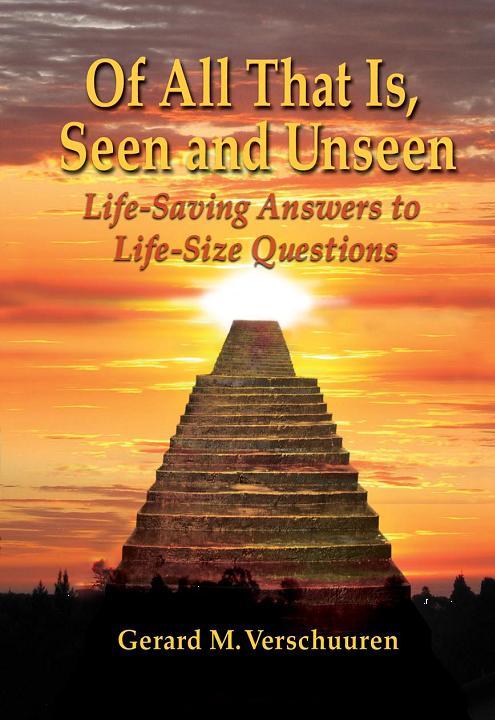Reviews
NIHIL OBSTAT: Rev. Thomas Hoisington, Censor Librorum, Diocese of Wichita.
IMPRIMATUR: Michael O. Jackels, Bishop of Wichita.
|

| "This lively and accessible work should awaken or reawaken many Catholics to the glories of their Church as a beacon of faith and reason. It’s a real contribution to the New Evangelization."
— Mary Ann Glendon
Professor of Law, Harvard University,
Former US Ambassador to the Holy See,
President Pontif
ical Academy of Social Sciences
|
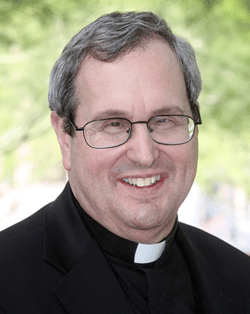
| “After a lifetime in the academy, I am convinced that the highest priority in the New Evangelization is intellectual evangelization, and specifically, apologetics – answering the major questions which so deeply concern our young people: Does God exist? Are we mere matter? Is there a conflict between the bible and science? Does evolution have to be rejected? What is happiness? Are we really free? How can suffering be reconciled with a loving God?
This book does all of this in an incredibly accessible, engaging, and intelligent way – which paves the way into the mind and heart of the living God."
— Fr. Robert Spitzer, S.J.
President of the Magis Center for Reason and Faith
Former President Gonzaga University
|

| "If you constantly find yourself in conversations about the Catholic Faith with skeptics, doubters and seekers, this is the book for you. Dr. Verschuuren does not leave anything out. Every argument or question that anyone has ever heard about the relationships between faith and reason, and religion and science is addressed in this book. If you’ve ever questioned evolution or creationism; if you’ve ever wondered whether faith can be rational or whether morality can be rational; if you are a scientist, a philosopher, seeker of truth, this book is definitely for you! Read it, share it, discuss it, use it in small group sessions or for large seminars, as part of your catechism or RCIA, in your science or religion classroom or for your new evangelisation strategy. It is probably the most complete Catholic/Science apologetics book that has ever been written."
|
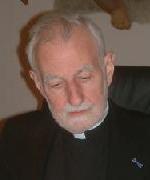
| “I find this book concise, coherent, courageous, challenging, and very Catholic. It will offer food for thought and fuel for discussions.”
— Fr. Marcel Chappin, S.J.
Professor at the Theology Department
Pontifical Gregorian University in Rome
|

|
“With a trained scientist’s attention to detail and precision, Gerard Verschuuren answers with aplomb, clarity, and conviction a variety of scientific and philosophical questions about God, science, and Christianity. Taking into account the riches of Sacred Scripture, the wisdom of the Church Fathers and Popes, and the perennial philosophy of St. Thomas Aquinas, this book provides an impressive array of lucid and compelling answers to many of today’s most-asked Big Questions.”
— Patrick Madrid
Author, radio host, and adjunct professor of Theology
at Franciscan University of Steubenville, OH
|
|
 "Being an atheist must be like living in a closed cell with no windows."
The Hollywood actor Anthony Hopkins
|
Lately, our society and culture have been inundated with atheism. Because atheism had already eroded our surroundings, an enormous mudslide has been set into motion. It looks now like we are up to our knees in this muck. As a matter of fact, there are some very vocal atheists who use mass media such as books, the internet, television, etc. to spread their new “religion.” They seem to feel empowered from “on high” to declare to the whole world that there is no God, and that they are His prophets.
Atheism comes in many disguises. In this chapter, find the one disguise that comes closest to your form of atheism – for we all have some kind of atheism inside of us, or perhaps we even change disguises every once in a while. Read in this chapter whether there is any remedy to heal from this highly infectious disease.
|
Don’t you have the feeling, like I do, that we are under steady attack of decrees like these:
- You are only a speck of dust
- You are only an automated machine
- You are only a bag of genes
- You are only a string of DNA
- You are only a blob of cells
- You are only a pack of neurons
- You are only a bundle of instincts
- You are only a glorified animal
- You are only a termite in a colony
- You are only an offshoot of evolution
- You are only a 3-dimensional being
Each one is a form of reductionism, reducing the complexity of the universe to the simplicity of its parts. Their shared message is this: You’re only dirt. They try to distort your human image and strip you of your human dignity. Don’t you feel ripped off? Perhaps philosophy can show us why these attempts fail and how we can defuse them. But still, we do need divine help to restore our human dignity and ethics. Let this chapter help you find your dignity back and become God’s image again.
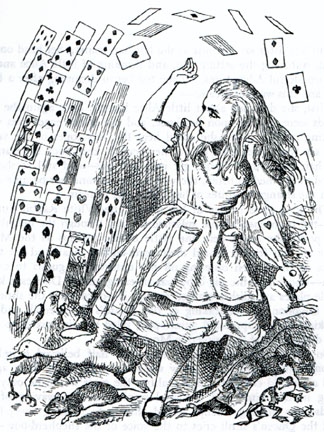 "You are
nothing but a
pack of cards."
Illustration for Lewis Carroll's
Alice in Wonderland
| |
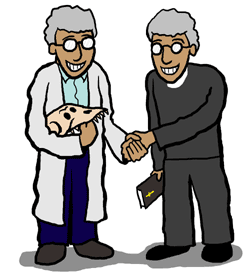
"Science can purify religion from error and superstition. Religion can purify science from idolatry and false absolutes."
Pope John Paul II
in a 1988 Letter to Fr. George V. Coyne, S.J.
|
For many centuries, science and religion used to live in harmony. But times have changed. Nowadays there is a breed of scientists who are very vocal atheists; they promote their new “religion” with extremely popular books and they preach their “gospel” in schools and universities. No wonder the faithful feel personally attacked. Although they did launch some counterattacks (often against science itself, though), they mostly retracted to their new catacombs, the church pews.
I believe it’s about time to revive the old dialogue between science and religion, for those “worshipping atheists” deserve to be challenged. This chapter tries to simulate a dialogue between a skeptical scientist and a religious scientist. Consider the debate as a course in “apologetics for dummies.” I hope and pray it’s going to open any blinded eyes for what’s at stake.
|
Did Adam and Eve have a bellybutton? They wouldn’t, if they didn’t have parents. Yet, all Catholic artists picture them having one. Was this perhaps the Creator’s seal of approval saying “you are done”? Or did they actually have parents? But if the latter answer is correct, what happened to their Maker?
What we have here is the passionate debate on the question Where do we come from? Are our roots in the animal world, or are we rooted in God? Or are both perhaps true? What do we teach at our schools? What should we preach in our churches? What should we believe as Catholics living in the 21st century? Should it be both evolution and creation, or just one of these? And as Catholic parents, what do we say to our children about creation and evolution?
All these questions are an issue of life or death. If evolution has the last word, then death is ultimately the end of the story. But if there is creation, then eternal life is the light at the end of the tunnel. Let this chapter be your solid guide, bolstered with many citations from Church authority.
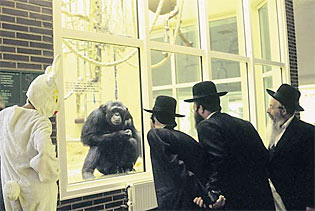 "Galileo saw nature as a book whose author is God in the same way that Scripture has God as its author. It is a book whose history, whose evolution, whose ‘writing’ and meaning, we ‘read’ according to the different approaches of the sciences."
Pope Benedict XVI
on 10-31-2008.
| |
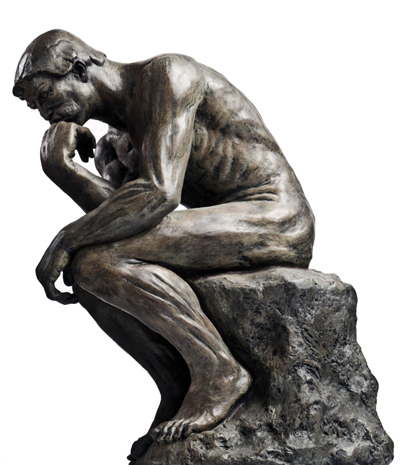
"“What a piece of work is a man! How noble in reason! How infinite in faculties!"
Shakespeare's Hamlet
|
The human mind and soul have been under attack for quite a while. I don’t quite understand why, but it’s my educated guess that it has something to do with the fact that many of us nowadays don’t like the idea that the human mind has been made in the likeness of God. But there is probably much more to it.
You may wonder, though, how the human mind could ever be seriously attacked and damaged. Indeed, it is amazing how some people love to downgrade the human mind while touting their own minds. Yet they keep trying to damage the human image as a replica of God’s image. They maintain, for instance, that human beings are nothing but glorified animals, and so must be their minds. Or they attempt to prove that the human mind is nothing but a neuronal network that runs like a computer, worth nothing more than a machine. This chapter wants to scrutinize those claims and seek to restore the human mind and soul as something made in Heaven.
|
Many seem to think that genetics tells us there are genes for practically everything: for being intelligent, for being an alcoholic, for being a homosexual, for being religious, you name it. I consider this an extreme form of determinism: The genes of parents inevitably and fully determine all the characteristics of their children! We are supposed to dance on the strings of our genes. Some geneticists have actually created phantom diseases and phantom genes to make their case. One of them even said he could compute the entire organism if he were given its DNA sequence and a large enough computer. There you go – literally, I mean.
What’s wrong with this form of determinism? Parts of our destiny may be determined by our genes and by our surroundings, but real determinism makes us fully victims of our past, with no future in sight. Questions abound. Can we still make our own rational choices and moral decisions? How determined are we to become more self-determined and less pre-determined? Is there still room for God’s salvation and providence? That’s a lot to tackle.
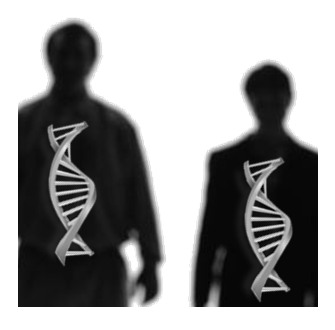 "Man will always be greater than all that which makes up his body."
Pope Benedict XVI
on 2/21/2009.
| |
 "In the depths of his conscience, man detects a law which he does not impose upon himself, but which holds him to obedience.”
Gaudium et Spes
from Vatican II.
Morality has come under attack from many sides these days – probably more so than ever before in history. I realize, of course, that morality has always been under attack – actually from the very moment Adam and Eve caved in to the first attack in history.
But nowadays, there is more going on than just human weakness. Many cultural, philosophical, and even scientific efforts are being made to undermine the very foundation of morality.
What they all seem to have in common is the idea that our moral values are undergoing constant change, and are therefore subject to various cultural and historical fluctuations. If this were true, morality would just be a matter of emotions, personal preferences, cultural trends, and majority votes. This chapter wants to delve a bit deeper, though, in order to unearth the religious foundation that has been upholding morality since the beginning of humanity. I hope and pray that this chapter will again open the eyes of those who have become morally blind.
| |
Our society is obsessed with the search for happiness; there seems to be so little of it. The other day, I found a brochure for nutrients in my mail box that featured in big letters: instant happiness delivered at home. We all know better, I hope. Happiness is not for sale! God has a better prescription for happiness: two tablets a day – that is, the two tablets of the Ten Commandments or Decalogue. They are not 10 suggestions, not even 10 options, but Ten Commandments. They are not nutritional supplements but “nutritional essentials.”
However, those vital Ten Commandments have lost their prominent position, not only on the walls of our court houses (your tax dollars at work!), but even – what’s much worse – “on the walls” of our conscience. That’s why our happiness is in trouble, more so than ever. They are more than “10 Words of Wisdom”; they are “10 Laws of Life” – one for each finger. We have got our hands full with these ten laws. Let’s find out in this chapter how we can get our health and happiness back with the right “diet.”
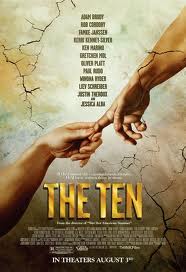 "Do not despise these sins which we call 'light': If you take them for light when you weigh them, tremble when you count them."
Saint Augustine
| |
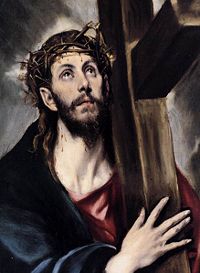 "How do we get God off the hook for allowing evil? God is not off the hook; God is the hook. That's the point of a crucifix. [...] How could he sit there in heaven and ignore our tears?"
Peter Kreeft
Philosopher
|
The problem can be stated very simply: How does an all-powerful God get away with the evil in the world? If God is not able to take evil away, God cannot be all-powerful. And how does an all-powerful God deal with human freedom? If God is almighty, human beings must be powerless...
In this chapter, we will find out how the Catholic Church deals with this dilemma. If suffering came through sin, it’s evil. Like Jesus, we have to fight evil with all we have, including medical care. But we also have to battle the way we perceive suffering. Like Jesus, we may discover there is redemptive power in carrying our cross.
Through the Cross on Golgotha, Christians have come to see God’s human face: an afflicted and crucified God, who does not cause our afflictions, nor does He sanction them, but He makes our tears His tears. Jesus came, not to abolish, but to sanctify suffering with His presence. Even in suffering – or particularly in suffering – we can find the Glory of God. But there is a long road in between. Let’s find out how we can get to God’s answer.
|
|
